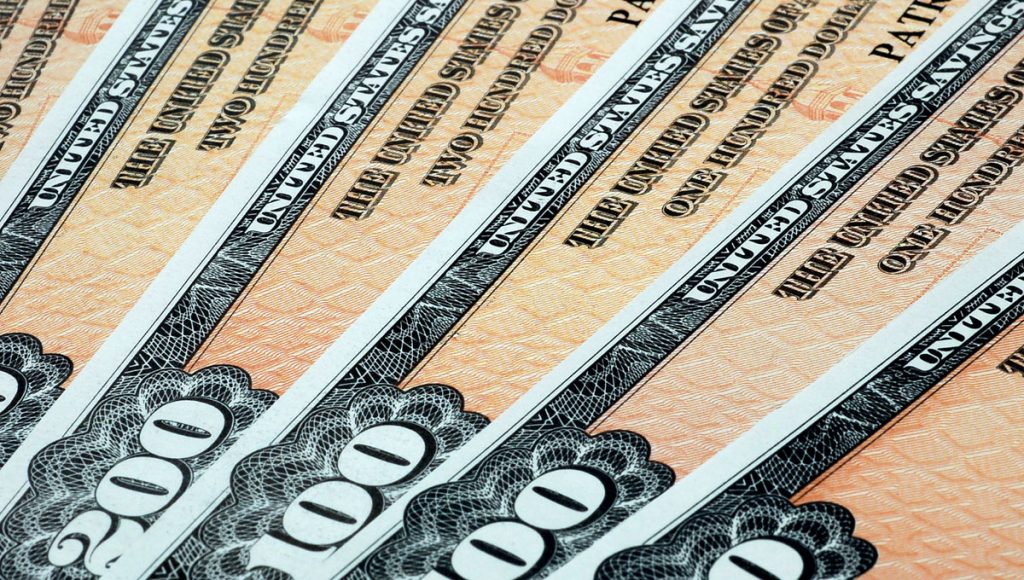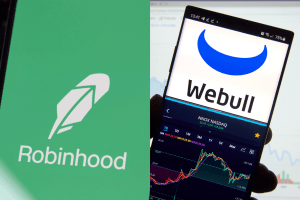Wondering whether you should - or even can - cash in those EE savings bonds? We've researched the topic to help you out.

You can cash in your Series EE savings bonds after you've held them for a minimum of 12 months, but it's best to wait until they've matured at 20 or 30 years, depending upon their initial terms. This way, you'll keep all the interest that accrued. Cashing them in early is always an option, but be aware that you'll forfeit a portion of the interest. Bonds that are cashed within the first five years are docked three-month's interest. You are also responsible for paying federal taxes on any EE bonds you cash out within the tax year.
Series EE savings bonds, now often referred to as Patriot Bonds, are a type of low-risk investment that you can purchase, or that someone else can purchase on your behalf, to help you earn money in interest over a 20- or 30-year period.
Long ago, grandparents and parents invested in these types of savings bonds, which are guaranteed to double their value over time, to help their descendants pay for college. People still do this today, but the bonds aren't actual paper bonds anymore. Today's Series EE savings bonds are electronic, but they still work the same way. They can be purchased in amounts anywhere from $25 up to $10,000 and have a $10,000 annual cap per social security number. The principal balance earns interest over time and matures at 20 years, after which they can be redeemed at full value. EE bonds will, however, keep accruing interest up to 30 years. After this time, you should cash them out, roll them into an education fund or reinvest them to start the process over again.
Are Series EE bonds still earning interest?
Whether your Series EE savings bonds still earn interest depends on when you purchased them, or when they were purchased for you. Interest stops accruing at the 30-year mark. This means if you're holding onto bonds purchased more than 30 years ago, they're no longing earning. For this reason, you should probably consider taking action.
Can EE bonds be rolled over?
Series EE bonds can be rolled over into a 529 college savings plan if you want to avoid paying federal tax on the interest. Paper bonds can also be transferred, trustee-to-trustee, into an IRA.
- 529 Plan: When you roll your Series EE savings bond over into a 529 college savings plan, you'll avoid federal taxation, and you'll benefit in another important way, as well. Funds from a 529 plan can be used for several things -- tuition, fees, textbooks, supplies, computers, peripherals, internet service and room and board. You could simply cash in your bond and use it for education to avoid paying the taxes, but qualifying expenses are then limited to just tuition and fees. It will benefit you or your student more to route the bond through a 529 plan.
- IRA: To add funds from a Series EE paper savings bond to your IRA without being responsible for federal tax, you would first have to place the funds with an eligible trustee who would then transfer them into your IRA account. This method is long and complicated, however, and may not be the best option. The only way to purchase paper bonds anymore is to buy them with money the government owes you on a tax return. Electronic bonds are not eligible for distribution directly into an IRA.
Where can I cash Series EE bonds?
Most banks, credit unions and other financial institutions can cash your Series EE paper savings bond. Cashing your bond makes you responsible for paying federal tax on the accrued interest. After you cash it, you'll receive a tax form, 1099-INT, in the mail to include with your regular return.
You can cash electronic bonds through the U.S. Treasury Department at their website, Treasurydirect.gov. They also offer an easy-to-use savings-bond calculator to help you find out what your bond is worth before you cash it in.
If you have a generous amount of mature bonds to redeem, it makes sense to stagger them across tax years to avoid paying an imposing dollar amount of taxes in a single year.
Can I cash a savings bond at Walmart?
Walmart cannot cash your savings bond. Neither can other stores or check-cashing businesses in your area. Only a financial institution or the U.S. Treasury Department can cash this type of savings bond.
Cashing a paper bond is as simple as handing it across the counter to the bank teller and letting her know you need to cash it in. You'll want to redeem it either during the same month it was purchased, or six months after to get the full interest. Have your ID ready, if the bond is in your name. If the bond is in the name of a deceased person and you're the beneficiary, you may need to provide a death certificate. If it's in your child's name, and he or she is a minor, you may need to produce their birth certificate.
Do you pay taxes on savings bonds when cashed?
As mentioned previously, if you cash your bond directly, you are responsible for paying federal tax on the accrued interest. Ways to avoid this include moving the money into a college or retirement fund instead of cashing the bond directly.
Another solution for Series EE bonds that are no longer earning interest involves re-investing them in new bonds. You can still purchase EE bonds, but they're electronic now. To reinvest, you'll have to cash in your old bond and buy a new bond. You'll still pay interest on the old bond, but the new bond will begin accruing right away to generate interest for another 30 years.
Whether savings bonds are still a good investment varies among financial experts. They are guaranteed funds, and they're low-risk. But because it takes them so long to mature, they actually offer a relatively low rate of return. You're also limited in how you can use the money once you cash the bond, if you want to avoid paying taxes.
Other options might be better investments, dollar-for-dollar, than savings bonds. Certificates of Deposit, money-market accounts and annuities may provide better, short-term returns. Even a personal savings account is better from a flexibility standpoint. Probably the best advice is to retain the services of a financial advisor if you have a considerate amount of money set aside for investing, of if you have multiple savings bonds to cash in. A financial advisor can help you make the best decisions based upon risk-level and length of investment to help you find the best fit for you and your family.



